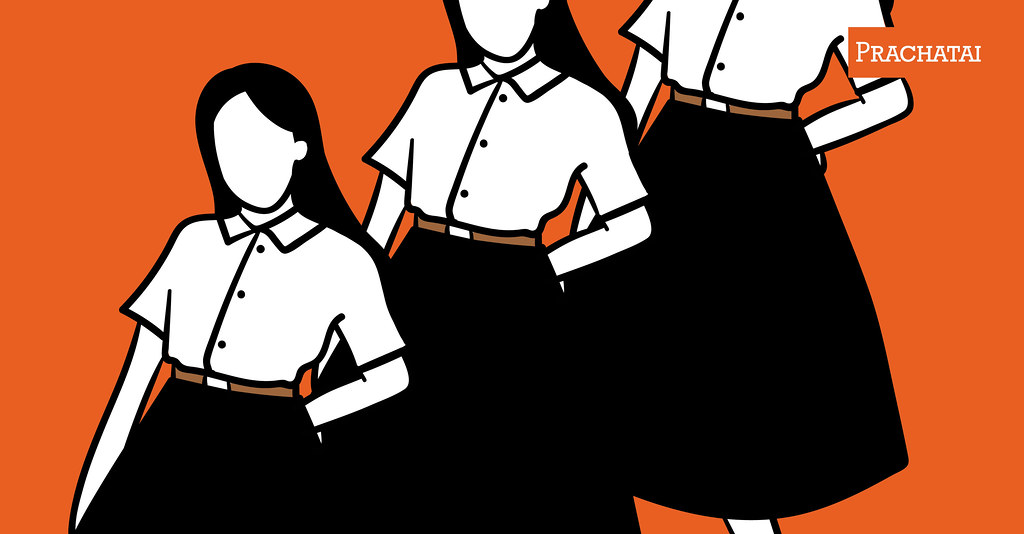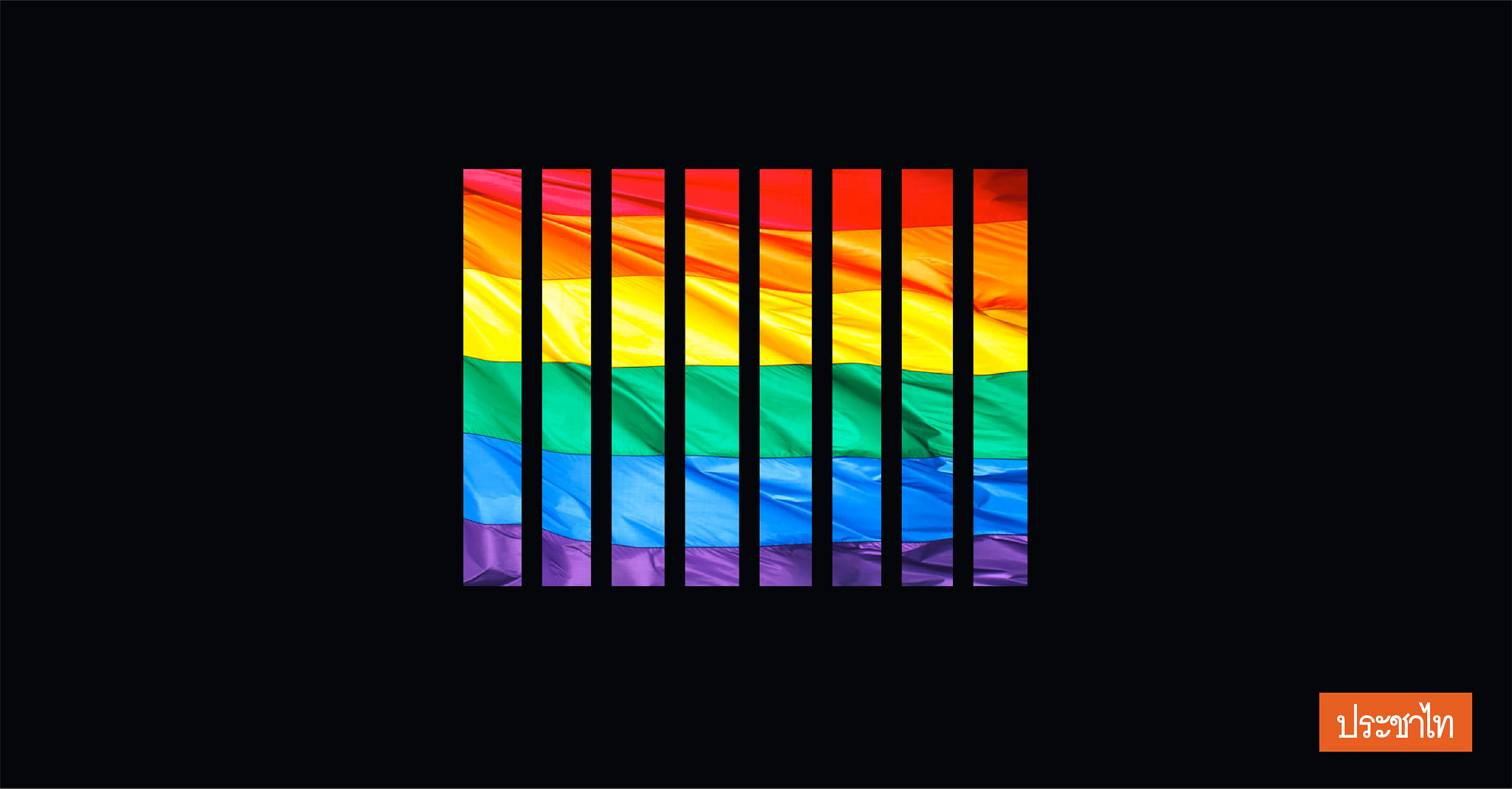On 15 January 2019, the Board of Administrators at the Faculty of Education at Chulalongkorn University overturned a transgender student permission to wear the university’s uniform for female students, and instead ordered the student to dress as male or face extreme penalties.

Jirapat, a student at the Faculty of Education, says that she filed a formal request with the Faculty in September 2017 for permission to wear the university’s female uniform to class and to sit examinations. The Faculty forwarded it to the university’s Office of Student Affairs. The university then informed Jirapat that it will be changing its uniform regulations so that the authority lies with each faculty.
Chulalongkorn University does not currently have an official protocol for transgender students requesting permission to dress according to their gender identity. Nada Chaiyajit, a trans right activist and legal advisor for the trans right group Transpiration Power, told Prachatai that there is an effort from the university to solve the problem by changing its regulations. However, giving the dean of each faculty the authority to give or not to give students permission to dress according to their gender identity is still a violation of human rights principles.
Meanwhile, as it takes time for the university to rewrite its regulations and for the new rules to come into effect, Jirapat filed another request with the Faculty of Education, and received a letter from the Faculty in December 2017 informing her that permission has been granted.
Later, Jirapat said that she faced transphobic comments from a special instructor in November 2018. The instructor told her to either dress as male for his next class, or not come to class at all. As Jirapat told Morning News on Channel 3, the instructor told her that being transgender is just like being insane, and that he had said to her: “it is good enough that we’re allowing you to study instead of sending you to an asylum.” The instructor also told Jirapat that he would be asking the faculty to reconsider her request.
On 11 January 2019, Jirapat was informed that the Faculty Board of Administrators had overturned their decision allowing her to wear the uniform for female students. She was also told that she must dress as a male from then on, or have her disciplinary points deducted, which could eventually result in termination of her student status.
Student activist Netiwit Chotiphatphaisal later launched a Change.Org campaign, indicating that the special instructor in question is Assistant Professor Dr Niran Sangsawat. The petition calls for the Faculty of Education to take disciplinary action against Dr Niran for his discriminatory behaviour which has continued for 35 years.
Due to the unfair treatment she received, Jirapat filed an appeal with the University’s grievance committee. On 16 January, the University released an announcement on its website that it has received the student’s appeal, and that the university's President, Professor Bundhit Eua-arporn, has suspended the Faculty of Education’s order, therefore allowing the student to dress according to her gender identity until a decision is made otherwise. Nada Chaiyajit told MONO 29 that she and Jirapat would be asking the University to start an investigation, and that they will push for the University to publish written regulations in order to prevent such a case from happening again.
Being LGBT in Thailand
While Thailand’s LGBT community faces daily cases of discrimination and inequality such as Jirapat’s, the country advertises itself as a queer-friendly destination. In 2013, the Thailand Tourism Authority even launched the “Go Thai, Be Free” campaign, hoping to attract LGBT tourists. Bangkok has been called “Asia’s gay capital” and is known for its gay nightlife scene, transgender beauty queens, and gender confirmation surgery. However, this façade of acceptance is only skin-deep. Here is a country that promotes itself as a gay paradise while offering no protection for its LGBT population, where discussions of sex and sexuality are still taboo and there is limited sex education in school, and LGBT people live under strong pressure not to bring shame on their family.
The LGBT community in Thailand is tolerated as long as its members remain within certain social confines. In Thai media, the token “kathoei” or trans woman is rarely seen in any other role but that of comic relief, and gay people are portrayed in a negative light or as stock characters. LGBT films, such as Tanwarin Sukkhapisit’s Insects in the Backyard, are often banned. Even with the Gender Equality Act of 2015, there is little legal support for the LGBT community. And even if homosexuality is no longer a crime under Thai law, the LGBT community still faces discrimination in the workplace, school, and in the home. There are reports of LGBT people being denied promotion or fired from their jobs after disclosing their sexuality, or questioned inappropriately about their sexual orientation and gender identity during interviews. LGBT students face harassment and bullying from their teachers and peers based on their sexual orientation and gender identity.
A USAID/UNDP report cited a 2014 study conducted by UNESCO, Plan International, and Mahidol University, which said that a third of the 2000 LGBT students participating in the survey had been harassed, and that only a minority had reported the bullying. Transgender children are often abused by their families and punished for being trans. Under Thai law, a transgender person still cannot legally change their title on identity papers, even after gender confirmation surgery, and most schools and universities still do not officially recognize a student’s right to dress according to their gender identity. Same-sex couples still cannot legally marry, and are therefore denied certain rights given to heterosexual couples, such as the right to adopt a child, to take their partner’s name, to access social benefits, to make medical decisions on their partner’s behalf, or to obtain a marriage visa for a partner who does not hold Thai citizenship.
Thailand is currently in the process of passing a Civil Partnership Act, which, if successful, would make it the first country in Southeast Asia to recognize same-sex partnerships, and local activists are working to push the country towards equality. But while there is no overt prosecution, there is no protection either. Discrimination still lurks below the surface of Thai society, which may not be the paradise of acceptance it claims to be.
Revision on 24 January 2019: previously, the report said that Jirapat sent a request to the Faculty in 2018 and continue to wear the female uniform while waiting for the verdict on her request. We were then informed that this is not the case. In fact, Jirapat filed her request in 2017. The permission was granted only to be overturned in January 2019. We have amended the report and would like to apologize for our mistake.
Prachatai English is an independent, non-profit news outlet committed to covering underreported issues in Thailand, especially about democratization and human rights, despite pressure from the authorities. Your support will ensure that we stay a professional media source and be able to meet the challenges and deliver in-depth reporting.
• Simple steps to support Prachatai English
1. Bank transfer to account “โครงการหนังสือพิมพ์อินเทอร์เน็ต ประชาไท” or “Prachatai Online Newspaper” 091-0-21689-4, Krungthai Bank
2. Or, Transfer money via Paypal, to e-mail address: [email protected], please leave a comment on the transaction as “For Prachatai English”

